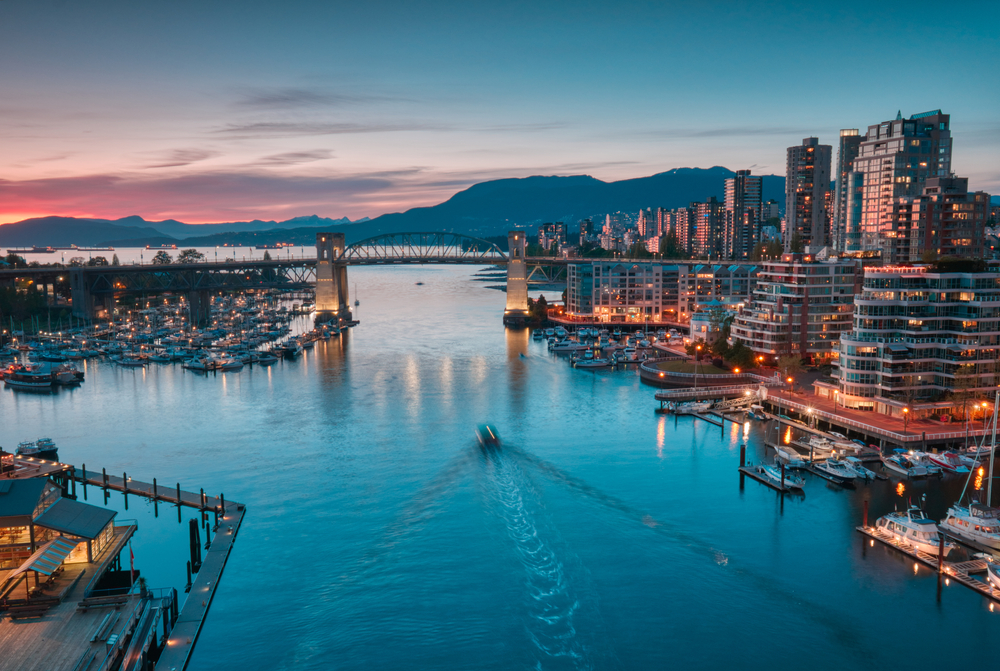So, you’ve decided to leave The Big Smoke for Gastown, The Six for Rain City, T-Dot for Terminal City. You aren’t alone. Thousands of people decide each year to move to Vancouver—not just from Toronto, but across Canada and the world.
And the reasons why are plentiful—there’s the natural beauty and scenic landscapes of the North Shore Mountains, abundant culture and diversity (boosted by a heavy Asian influence), burgeoning arts scene, and fast-paced nightlife. Still, any kind of move, whether it’s cross-town or cross-country, is bound to stir up some anxiety and nervousness about the unknown. That’s why we’ve compiled a list below of things to know before making your move from Toronto to Vancouver.
Schooling
The Vancouver School Board (VSB) is one of the largest school districts in all of British Columbia, with 110 schools, 50,000 students, and 9,000 staff members. The district also prides itself on its diversity and indigenous education system. Schools generally start in the middle of September, with a Winter Break during the Holidays and a Spring Break in March, before the school year concludes in late June. Registering a student begins with an online application that can be found on the VSB’s website.
Healthcare
Like you may already be familiar with, receiving health care in Vancouver can sometimes require a long waiting period. But one thing to keep in mind that you may not know is that you will have to pay the full costs of any medical services incurred for the first three months after moving to British Columbia. After that period, any citizen or permanent resident can apply for the BC Medical Services Plan (MSP). The city has a variety of drop-in clinics and emergency rooms, but you’ll also need to find a family doctor for ongoing care.
Childcare

The Vancouver School Board offers Strong Start Centres, which are intended for children aged four and younger. While these facilities are free to use, they do require the parent to stay and participate in the program with the child. For daycare facilities, full or partial subsidies may be available to you through the Province. Additional information on obtaining childcare in Vancouver can be found on the city’s website.
Important phone numbers
Vancouver has several easy-to-remember phone numbers that residents can use to gain important information or updates about happenings in the city. For concerns such as garbage, recycling and yard trimmings, animal control, traffic problems, and city events, you may call the City of Vancouver at 3-1-1. Another community-focused resource that provides callers with community, social and governmental services can be found by calling 2-1-1. Health advice is available at 8-1-1, where a health services representative can help you track down services or connect you with a nurse, dietitian or pharmacist.
Utilities
The City of Vancouver’s utility services includes water distribution, sewer collection and treatment, garbage collection, yard trimmings collection, and food scraps collection. Electricity used in Vancouver is generated through sustainable resources like hydroelectric power. Headquartered in the heart of the city, BC Hydro and Power Authority is the leading electricity distributor for all of British Columbia, serving nearly 2 million customers. The BC Hydro website has an assortment of online resources for people moving into the area, including instructions on establishing service.
Weather
Unlike Toronto, where the weather can be frigid or vary to extremes, Vancouver’s climate is thought to be more moderate. And because of its proximity to the ocean, Vancouver also generally sees less snow than Toronto. However, it does get significantly more rain, so make sure to pack your umbrella and boots.
Transportation
Courtesy of a network of services provided by TransLink, the regional transportation authority, there are several different types of public transit options throughout Vancouver. Getting around inside the city can be accomplished via SkyTrain, bus, creekside ferries or trolleys. This visitor’s guide to public transit produced by the City of Vancouver might be helpful until you get up to speed (no pun intended). For short jaunts, walking and biking are heavily encouraged. In fact, the city reports that 54% of trips in Vancouver are made by walking and rolling, cycling, or transit.
Travel time
Because of its western location, Vancouver offers shorter flights to places like Asia and Australia than the more eastern Toronto. Additionally, the city is a drivable distance to hot spots in the U.S. like Seattle and Portland and is only a short flight from San Francisco, Los Angeles and Las Vegas. Vancouver International Airport, located in nearby Richmond, British Columbia, is an award-winning airport and the second busiest in Canada behind Toronto Pearson International.
As you make your move, don’t forget to browse the City of Vancouver’s official website for more information on its green initiatives, parks and recreation, and economic development.







